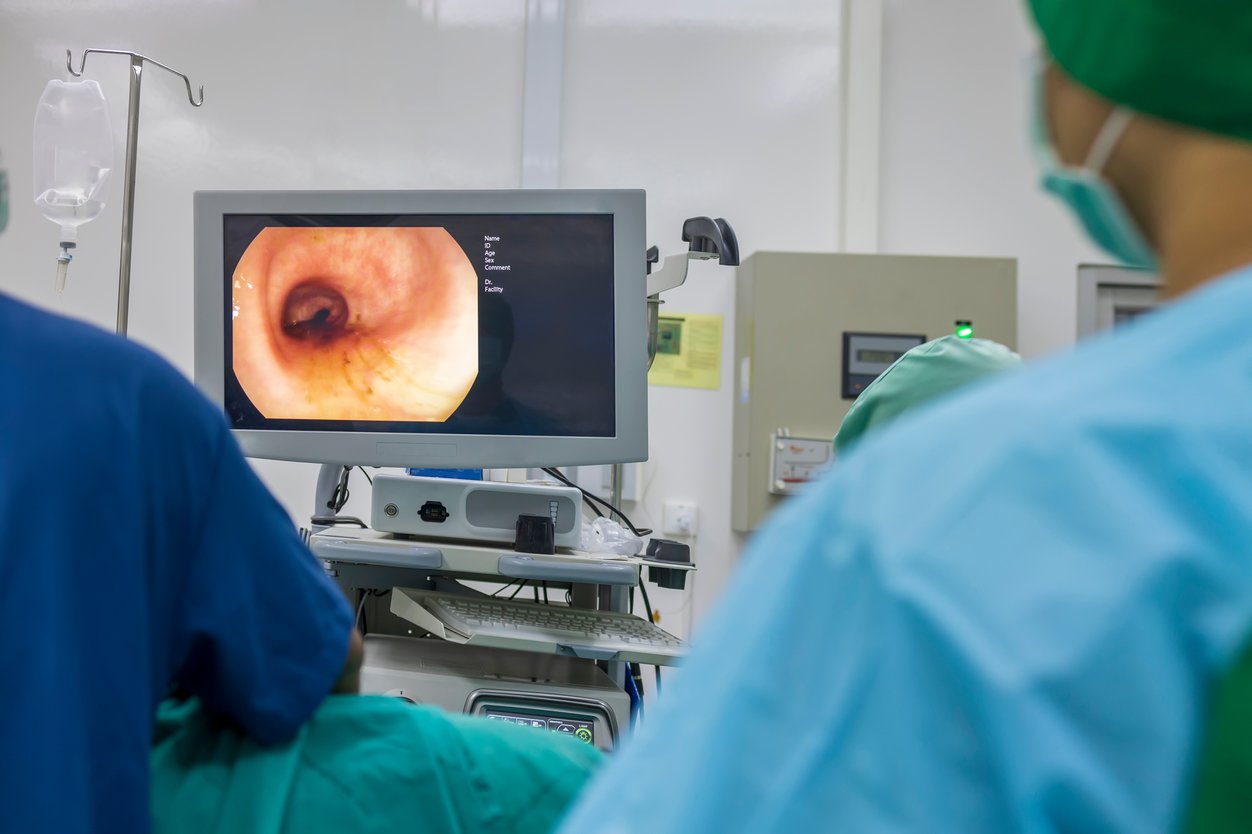closer look
Opinion: We need to get the word out that eating before a colonoscopy is fine
Adobe
The rising rate of colorectal cancer among younger people has lowered the age for a screening test to 45, down from 50. Improving detection means drawing attention to the best tool medicine has: the colonoscopy. If you just wrinkled your nose in disgust for the nasty prep, you're not alone. But gastroenterologist Benjamin Lebwohl says it doesn't have to be that way.
Imbibing that purgative drink is unavoidable, he writes in a STAT First Opinion, to give a clear view of the colon. But there's a second, unnecessary step: Most colonoscopy instructions insist on a clear liquids-only diet for the day before. "A low-residue diet, one that is heavy on starch and protein and free of vegetables, is just as effective," he says. "A pre-colonoscopy diet that includes solid foods is safe and effective, and there are abundant data to prove it." Read more.
public health
CDC alerts doctors to growing risk of measles
The CDC issued a health alert to physicians yesterday warning them of the rising risk of measles in this country. By March 14, the U.S. had racked up as many measles cases in 2024 as it had in the entirety of 2023 — 58 cases, reported by 17 states. In reality, the 2024 figure has already surpassed the 2023 total, with additional cases reported since the CDC's most recent update, STAT's Helen Branswell tells us.
The CDC said 93% of the cases were linked to international travel and most were in children who were not vaccinated. It urged doctors to ensure kids are up to date on their measles shots, and reminded them that those aged 6 months and 11 months who are embarking on international travel should receive a first dose of measles vaccine before they go. They should later receive two additional doses, after their first birthday. Typically kids get their first of two measles shot between the age of 12-to-15 months.
The American Medical Association's chief also weighed in. "As many Americans begin spring break travel, the AMA urges everyone who isn't vaccinated to get themselves and their families vaccinated against the measles," AMA President Jesse Ehrenfeld said in a statement.
health
'Havana syndrome' study finds no brain injury
The U.S. government calls them "anomalous health incidents," but most people think of them as Havana syndrome — the dizziness, visual difficulties, pain, and cognitive struggles first reported in 2015 by State Department workers posted at the U.S. Embassy in Cuba. Similar reports followed from other government officials stationed in Europe and Asia. Now a new JAMA study has found no brain injury on repeated scans in 81 patients with symptoms compared with 48 people in similar jobs but without symptoms.
In another JAMA study also published yesterday, these two groups showed few differences in auditory, vestibular, cognitive, and visual function tests or blood biomarker analyses. A companion editorial written by David Relman, who led an earlier study saying pulsed radio-frequency energy could cause the buzzing, high-pitched sounds the people reported, takes a skeptical view, drawing comparisons to dismissals of Gulf War syndrome, chronic fatigue syndrome, and long Covid. "Prejudice and poorly supported assumptions must be set aside," he writes.


No comments